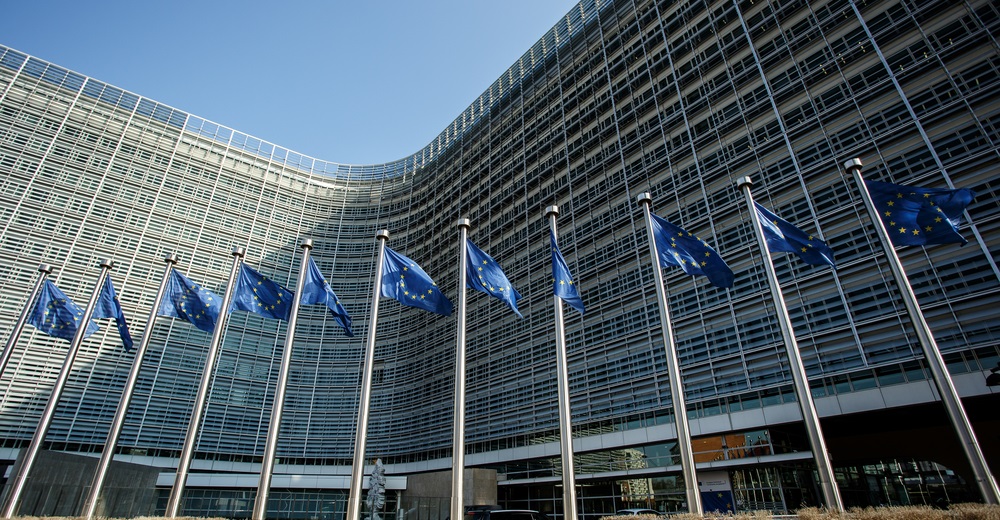[ad_1]

The European Fee is gathering suggestions from EU residents, companies, regulators and different events to ascertain a regulatory framework for crypto belongings and markets on a European stage. The general public session which began in December will proceed till March 19, 2020, with the finalized proposal anticipated within the third quarter.
Additionally learn: Swiss Monetary Watchdog Proposes $1,000 Consumer Identification Threshold for Crypto Transactions
EU Legislative Course of for Crypto Property in Progress
The legislative course of within the European Union might be lengthy and sophisticated – initiatives, roadmaps, assessments, and discussions should take into consideration numerous and various pursuits. The widespread market wants a typical regulatory framework with buyers, firms, prospects and regulators talking the identical language, which takes time as stakeholders have already realized.

The European Fee has the precise of legislative initiative within the EU. The method of planning and getting ready a brand new legislation or coverage entails placing out a roadmap that describes the issue, units out aims, outlines coverage choices, and defines the scope of the proposed authorized framework. A extra detailed inception influence evaluation replaces the roadmap when the potential influence of the laws is important. Residents, companies, civil society and public authorities are invited to specific opinions in regards to the proposal earlier than it’s finalized.
The dearth of regulatory readability and authorized certainty within the crypto house is what prompted the European Fee’s Directorate-Basic for Monetary Stability, Monetary Providers and Capital Markets Union (Fisma) to launch an initiative for the adoption of a European regulatory framework for crypto belongings and associated monetary companies. Initiating and implementing the EU coverage within the space of banking and finance is the DG’s major duty.
European Fee Points Inception Affect Evaluation of Crypto Regulation
Fisma printed an inception influence evaluation in December to tell residents and events in regards to the Fee’s plans that may lead to a legislative proposal. The directorate is in search of their suggestions on the initiative in addition to their views on its understanding of the issue. The evaluation will even function a chance to determine crypto belongings and associated companies that aren’t lined by EU’s Fifth Anti-Cash Laundering Directive to supply the idea for future amendments to AMLD5 taking into consideration the newest suggestions of the Monetary Motion Activity Drive (FATF).

The transfer comes after the Fee adopted a Fintech Motion Plan in March 2018 mandating the European Securities and Market Authorities (ESMA) and the European Banking Authority (EBA) to evaluate the suitability of the present EU laws to crypto belongings and preliminary coin choices (ICOs). On their recommendation acquired in January 2019, the EC is now working in two instructions: assessing the applicability of the present framework for these digital cash that qualify as monetary devices and establishing if a brand new regulatory strategy is required for the remainder. A letter by EC President Ursula von der Leyen to Fisma Commissioner and Vice-President Valdis Dombrovskis describes the duty in a sentence:
Guarantee a typical strategy with Member States on cryptocurrencies to make sure we perceive the best way to profit from the alternatives they create and deal with the brand new dangers they pose.
There isn’t a definition of crypto belongings within the EU in the meanwhile, the directorate notes. It’s unclear how present laws apply and the absence of devoted guidelines leaves customers and buyers uncovered to dangers. Stablecoins may pose extra challenges, when it comes to financial coverage and sovereignty, attributable to their capability to be a substitute for fiat foreign money. The dearth of authorized certainty, in keeping with Fisma, is a serious hurdle to the event of a sustainable crypto asset ecosystem. Moreover, nationwide regulatory regimes applied by some member states could make the cross-border provision of crypto-related companies troublesome, the directorate remarks.
Regulatory Proposal Anticipated in Third Quarter
The European Fee has to this point acquired suggestions from a number of organizations. The Spanish Bolsas y Mercados Españoles (BME), which integrates firms working securities markets and creating blockchain options for them, welcomes the Fisma initiative. It has expressed its views concerning a number of points such because the definition of crypto belongings and the monetary market infrastructure supporting innovation. The Belgium-based European Financial savings and Retail Banking Group (ESBG) insists on implementing a licensing regime for crypto service suppliers and a algorithm to guard abnormal customers and buyers.

Two Italian entities have additionally shared their opinions. In response to Hyperlinks Basis, the deflationary nature of crypto belongings could assist the European society emigrate from a debt-based economic system whereas Digital Ledger Applied sciences (DLTs) can increase belief within the monetary sector and introduce “shorter worth chains with fairer remuneration logic.” The analysis establishment requires decreasing the problem for startups coping with crypto belongings to open conventional financial institution accounts, selling entry to crypto belongings with out requiring accredited investor standing, and facilitating the fee of wages in cryptocurrencies. A small consultancy agency working within the sector, Coinlex, stresses the necessity for a European crypto directive to keep away from fragmentary nationwide laws.
The general public session on the initiative was launched on Dec. 19, 2019 and can proceed till March 19, 2020. The European Fee expects extra suggestions and different views on all points of the initiative from residents, blockchain consultants, market individuals corresponding to crypto exchanges and pockets suppliers, representatives of the normal monetary sector and fintech startups, member states and competent nationwide authorities. They’ll contribute to the session by filling in a web-based questionnaire after registering with the EU’s Transparency Register. The finalized regulatory proposal is predicted within the third quarter of 2020.
Do you suppose that opinions expressed by members of the crypto neighborhood and business might be taken under consideration by the European Fee? Share your expectations within the feedback part beneath.
Pictures courtesy of Shutterstock.
Do you know you should purchase and promote BCH privately utilizing our noncustodial, peer-to-peer Native Bitcoin Money buying and selling platform? The native.Bitcoin.com market has hundreds of individuals from all around the globe buying and selling BCH proper now. And in the event you want a bitcoin pockets to securely retailer your cash, you may obtain one from us right here.
[ad_2]
Source link

